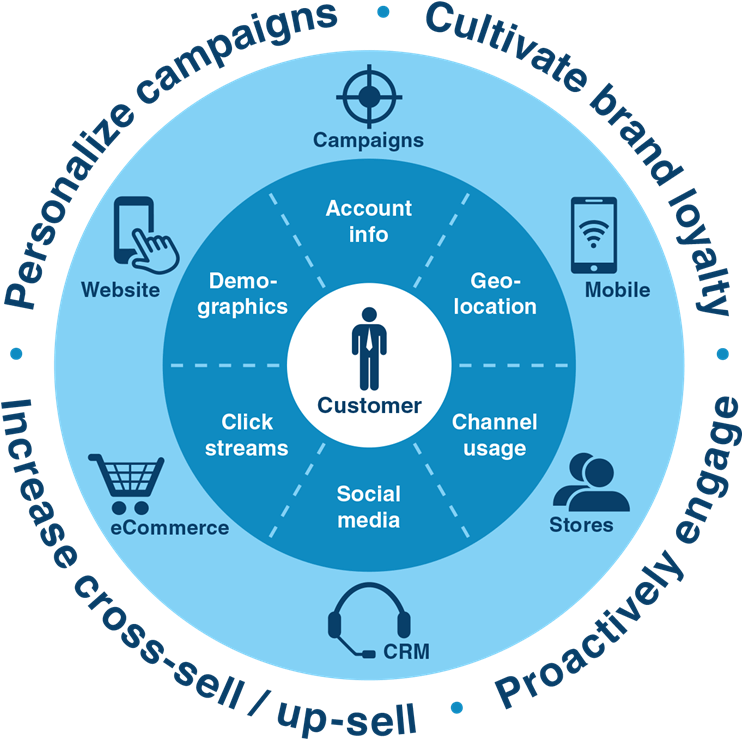Contents
The retail sector has witnessed transformative changes in recent years, especially when the impacts of the Covid-19 pandemic have affected consumers’ behaviors. Retailers are implementing more cutting-edge solutions, such as an omnichannel model, artificial intelligence (AI), and machine learning to better satisfy customers.
The first two technologies can easily be seen in the daily performance of the business, such as a cloud-based POS system or automatic chatbot. Although taking more time to implement, machine learning applications in retail are considered the industry’s future enabler.

How machine learning revolutionizes all aspects of the retail sector
As machine learning can collect and evaluate a huge volume of customer data, retailers are always informed of the latest changes to adapt to the new situation. According to IBM, here’s how it works:
First, machine learning receives input data, which can be categorized or uncategorized, then finds patterns from the information. Next, the technology will run an error detection system to ensure the accuracy of the results. Finally, the new data is optimized into the business’ database to reduce the inconsistency with the current information. Until reaching a threshold, the process is repeated to guarantee that the data is always up-to-date.
These sophisticated algorithms have forever changed the relationship between retail sellers and buyers. In the past 5 years, the term “customer-centric” has become one of the most favorite philosophies of retail owners. A customer-centric business puts the consumer at the core of its performance. To be able to bring this vision to come true, the brands need to digitally transform their business to better and quicker serve a larger market.
Along with the development of machine learning, business owners can quickly anticipate buyers’ expectations and create a personalized customer journey. For example, in the past, retailers needed to manually divide customers into groups to send follow-up emails about product recommendations. However, this task is now done automatically as machine learning can analyze customers’ shopping patterns and find out the suitable options based on their previous purchases. Smart segmentation also can act as a filter to eliminate inappropriate items exposed to the wrong audiences.
The importance of machine learning applications in retail does not limit itself to the consumer side. Retail businesses can gain huge benefits when implementing this technology into its system. With its power in processing data, machine learning will be the perfect ally for retailers in running every area of their stores, from inventory management to website optimization and sales/marketing activities.
How important is machine learning to the future of retail?
In a survey of Deloitte in 2016, 50% of shoppers agree to share private information if the business can offer unique and personalized support and promotions. To better utilize this data, the retail sector needs to apply machine learning into its workflow. Machine learning can improve customer service and create a customized experience for buyers. For instance, Amazon, the world’s biggest retailer, has 55% of its revenue from automatic recommendation engines, which is widely rated as the best in the market.
Retailers have also acknowledged the power that machine learning can bring to their businesses. In 2018, the number of retail companies adopting AI or machine learning had boosted up to 600% compared to 2016. A survey by Statista for worldwide retailers has identified cost savings, enhanced decision-making, and process automation as some of the main aspects in which the technology has strong potential to flourish.

Furthermore, this trend is encouraged by the thousands of retail chains’ boards of directors.
- 20% of C-level directors in 10 different countries entrust machine learning applications as the core part of their companies.
- 65% of businesses would likely adopt machine learning since it helps them in decision-making.
- U.S. retailers who use machine learning to analyze data from their supply chain have witnessed up to a 10% increase in operating margin over the last 5 years.
5 ways machine learning is fulfilling the retailing needs
Stock prediction and logistic support
For retail businesses, maintaining a healthy inventory is as important as selling on the storefront. Many owners are struggling to avoid stockout or overstocking their warehouse. Annually, worldwide retailers lose $1.1 trillion just because of poor inventory management.
Machine learning can be the ultimate solution for better inventory management. Computers will collect different aspects of products records, including but not limited to:
- Imports and exports
- Time ranges, such as days, weeks, quarters, or special occasions like Christmas or Thanksgiving
- Sales history
- Location
- Trends
- Promotions
- Common customers groups
The system then calculates the products’ health and sales performance based on these criteria, then notifies retailers when particular items need to be restocked or delayed. Thanks to this machine learning application in retail, store owners can better understand their inventory and quickly shift to more effective strategies when needed. For instance, Morrisons, the fourth largest chain of supermarkets in the United Kingdom, has reduced 30% of shelf gaps in 491 stores as a result of better stock forecasting.
Pricing optimization
There are millions of retail businesses of all sizes globally. It can be an intense battle to stand out from the sea of other competitors. An engaging and dynamic pricing plan will be the key to attracting customers to your retail stores. Machine learning can help businesses to analyze and apply flexible pricing without losing their overall target.
For example, in seasonal events such as Valentine’s Day, the demand for chocolates is predicted to get accelerated. With high demand, the price will be what consumers take extra consideration. Machine learning can help you address past tendencies in the last Valentine’s days and deliver a suitable plan that ensures both parties’ satisfaction: You gain the most revenue while customers don’t have to buy anything overpriced.
Demand forecasting
From the example above, demand forecasting is also a fantastic use case of machine learning in the retail sector. Storing a huge dataset over time, machine learning applications can be your most experienced employee. They can predict the trends and potential changes thanks to analyzing past performance based on the 5 determinants of demand in retail:
- Product price
- Customers’ income
- Prices of complementary goods or services
- Customers’ tastes
- Customers’ expectations
The results help retailers not only better prepare for their stores in the next phase but also support flawless customer service as the brands will not lose any potential buyers due to being out of stock.
Customer behavior tracking and prediction
One of the most striking advances that machine learning brings to the retail industry is its ability to track and analyze customers’ actions and behaviors. Not limited to only evaluating and predicting consumers, the application can integrate with other tools to form a comprehensive customer management system, both online and offline. Gigantic retailers like Walmart or Target have adopted this technology and received great achievements.
Take a look at this success story of a top printing Japan company. The firm has spread its influence to multiple areas, especially in the retail sector. The business needs a powerful technology that can support its brick-and-mortar stores to boost its growth. Each location is equipped with a CCTV system that records videos of customers’ behaviors. It will be a valuable asset if the company can take advantage of these resources in analyzing customers’ behaviors.
Machine learning has brought these seemingly impossible ideas to reality. After assigning behavior patterns for every customer journey’s step, the machine can now recognize the customer’s buying intent. It will alert the staff when customers perform certain actions, such as choosing a product, thereby creating a personalized experience for each visitor.
Customer buying journey optimization
When retailers understand consumers better, they can improve their customer service to suit their target audience. Machine learning can support every retail department, for instance:
- The Sales team can quickly identify the needs of consumers and recommend suitable products with their preferences and budget based on their purchase and transaction history.
- With demand forecasting, the Marketing team can create attractive promotions to catch up with the trends and changes in customers’ behaviors.
- The Logistics team will always be in full control of inventory to know when the items need to be refilled.
- The Customer Support team can provide a seamless service as they have access to customer data that has been organized, visualized, and updated constantly.
In conclusion,
Different from AI’s ability to mimic humans, machine learning focuses on how computers understand and analyze customers’ actions and behavioral patterns. Thanks to this technology, retailers can make better decisions and strategies in time as well as enhance their customer service. With more and more retailers adopting the technology, the possibilities of machine learning applications in retail are endless. It’s time for the retail sector to seriously take a step further into renovating the whole workflow with machine learning.
Revolutionize your retail strategy and operations with new tech
Machine learning is transforming the retail industry, offering innovative solutions for everything from customer personalization to inventory management. With GEM Corporation’s extensive expertise and a history of successful implementations for top-tier clients, we can help you harness the power of machine learning to stay ahead of the competition.
With 100+ projects and extensive AI R&D activities, GEM is here to deliver excellence and value to your business. Connect with us today via the form below!
Error: Contact form not found.






